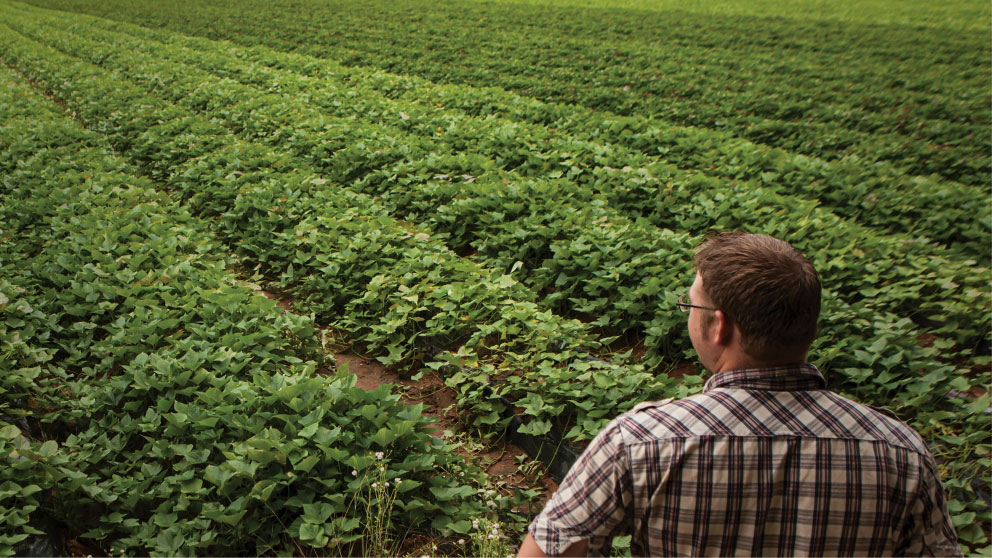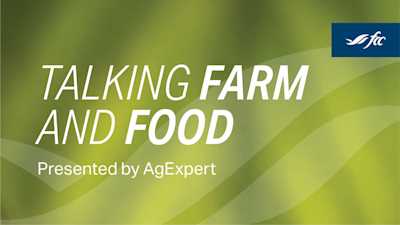Agriculture podcasts are on the rise – and for good reason

Seeding, driving to town for supplies, yard or barn work — common, important tasks around the farm that also open the door to multi-tasking — which is where a growing number of Canadian farmers see podcasts fitting into their lives. If you haven’t jumped on the podcast bandwagon yet, it’s likely you know someone who has.
Agricultural economist Brad McCallum of Truro, N.S., is a podcast aficionado. As a frequent traveller to agricultural meetings throughout the province and the country, he uses the travel time to learn.
“I got tired watching the same movies and listening to the same music over and over,” McCallum says. “I wanted to do something more useful with my time, so I started downloading podcasts.”
McCallum, who is executive director of AgriCommodity Management Association, wanted to increase engagement with members of Nova Scotia’s livestock sector and delivery of advance payment programs, so he launched Maritime AgCast podcast to keep livestock farmers up-to-date with reliable information.
Podcast consumption on the rise
Maritime AgCast is a part of the growing podcast phenomenon in Canada. In its 2020 report, The Infinite Dial, Edison Research and Triton Digital said the introduction of unlimited data plans by Canada’s top three mobile carriers in June 2019 had a significant impact on online data consumption growth, paving the way for more podcasts.
According to the report, Canadian podcast listeners 18 years of age and older listen to six podcasts a week. Podcast consumption in Canada as a percentage of the population now equals that of the US. Almost one-quarter of the population in Canada listened to a podcast in the past week.
And it’s not just younger people who are listening. Nearly one-quarter of podcast consumers are 55 years of age and older - the average age of Canadian farmers.
Podcasts cover various topics, from fictional stories and news updates to historical accounts and learning opportunities. If you have a smartphone – you can listen to an endless variety of podcasts, anytime.
New FCC podcast on the scene
Falling into the category of learning opportunities is another relative newcomer onto the podcast scene, FCC Knowledge: Talking Farm and Food. Marty Seymour, director of industry relations for FCC, hosts the monthly podcast that launched last year. It highlights stories and experiences of farm business entrepreneurs from across Canada and lessons they’ve learned on their journey, no matter their location or sector.
Episodes are 30-50 minutes long, with Seymour interviewing guests on topics like finance, transition, strategy and leadership.
Such matters can get weighty. But Seymour concentrates on keeping the conversation moving.
“The best interviews paint a picture for listeners,” he says. “It’s up to the interviewer to keep probing, to get guests to drop nuggets of knowledge throughout the interview for listeners. It’s like the relationship between a play-by-play host and a colour commentator on a sports broadcast. They work together.”
Seymour says the bulk of podcast interviews are with regular people who know a little something about a specific topic or field. “They make for good listening because the audience can see themselves in the story,” he says. “The combination of common language and few boundaries on time speaks to listeners in a novel way.”
Podcasts appeal to people with routines. That’s when they have the most time to listen.
One of his favourite episodes, “Ranching by the numbers,” featured beef producer Ben Campbell of Grazed Right Ranch outside of Calgary, talking about the ups and downs of pursuing profitability.
“He’s an excellent rancher with great ideas, and he also talked about his frustrations and vulnerability,” says Seymour. “Producers can all relate to these kinds of experiences.”
Seymour and McCallum both say podcasts appeal to people with routines – like travelling to town for supplies or carrying out field or barn work. That’s when they have the most time to listen.
“Listeners don’t have to be laser-focused like when they listen to a story on the radio or an audiobook,” says Seymour. “They are the perfect medium for the multi-tasker. Seeding is coming up, and I’m expecting a lot of engagement.”
You can binge listen to season 1 of the FCC Knowledge: Talking Farm and Food on any podcast listening platform like Spotify, Apple Music or Stitcher, or fcc.ca/podcasts.
4 reasons to add podcasts to your routine or development plan
You pick the pace. Choose to listen as episodes are released or scroll back and check out an entire series’ library during this year’s harvest.
Easy access. You can find podcasts on all sorts of listening applications such as Spotify, Apple Music and Audible making them extremely easy to find and listen to on your phone. You can listen and learn, anytime.
Perfect for on-the-go and folks with a routine. Choose an episode the same length of the task you plan to do while listening. Have a 20-minute drive to town? There’s a podcast for that.
Something for everyone. If you’re looking for entertainment or business advice, podcasts have you covered. Hear from real folks that you can relate to or a new perspective from someone different.
What are Brad and Marty listening to? Here are a few of their podcast picks:
Article by: Owen Roberts

A focus on shared values during disagreements can help fuel innovation rather than discontent.
